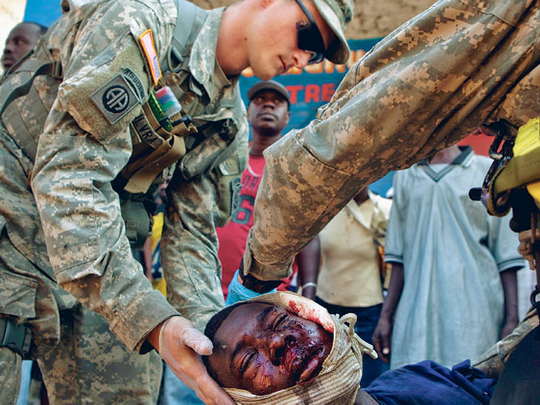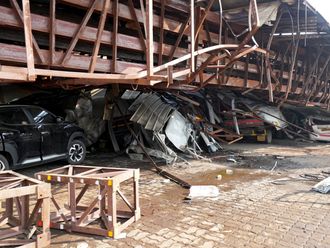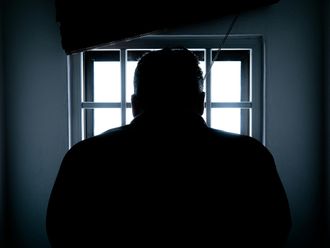
Port-au-Prince: Doctors and aid workers say treating the tens of thousands of Haitians injured by the earthquake is taxing the country's devastated hospitals — as well as the efforts of physicians from around the world who are providing emergency care.
Basic medical supplies such as antibiotics and painkillers are running dangerously low at some hospitals and clinics in Port-au-Prince, the capital, and in the countryside, alarming doctors who are struggling to keep up with demand.
Dr Nancy Fleurancois, volunteering at the damaged hospital in the coastal town of Jacmel, told a visiting UN official on Thursday that her team is treating 500 people a day — many for the first time since the January 12 quake — and desperately needs antibiotics and surgical supplies.
"You see people come here and they are at death's door," said Fleurancois, a Haitian-American from Newark, Delaware. "More help is needed." The doctor got to air her concerns to Anthony Banbury, deputy head of the UN peacekeeping mission in Haiti, during his tour of Jacmel, where more than 20,000 people are homeless.
Banbury said later he would try to resolve her shortages, but noted there is a "grave need" for medicine all over Haiti. Aid workers say the need for medicine generally falls third behind water and tents for shelter from the blistering tropical sun and looming rains. The reason all three are not reaching people is the same: The need is so great and it's just not possible to get supplies into Haiti fast enough or distributed in a country with ruined infrastructure.
Warnings
The struggle to treat people comes amid warnings of a potential public health calamity with tens of thousands of Haitians living in squalid camps around the capital.
"The health care system in Haiti has been terribly affected by the earthquake," said Joe Lowry, a spokesman for the International Federation of the Red Cross. "Medical staff have been killed and injured, hospitals destroyed and stocks damaged and depleted."
The UN estimates the quake injured about 200,000 people, including thousands who required amputation of damaged limbs and now must have postoperative care to prevent infection.












